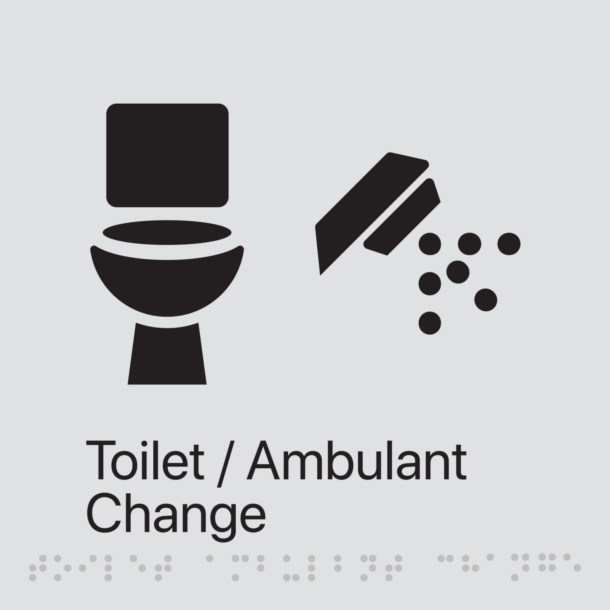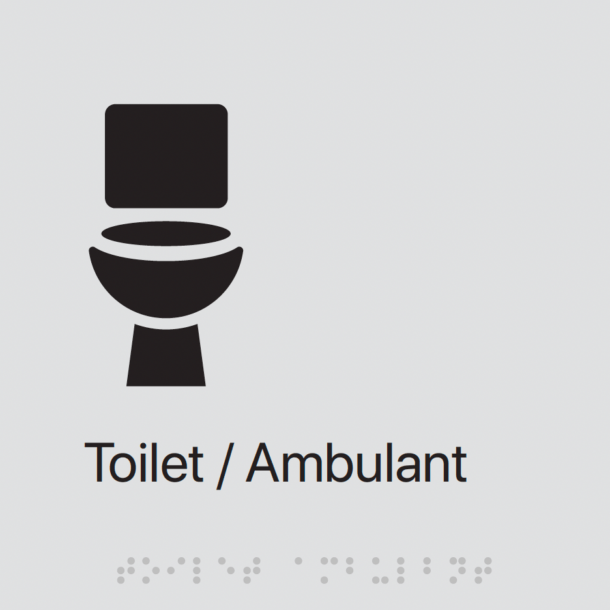Parlour whole-heartedly supports efforts to change the National Construction Code to allow the provision of all-gender bathrooms under the National Construction Code 2025. We encourage the Parlour community to support this work too. Read on to find out how.



UPDATE. The proposal has now been submitted with over 50 supporting statements. We will keep you informed of progress as learn more.
Alison Cox is currently preparing a submission to the Australian Building Codes Board (ABCB) to request changes to the NCC 2025 to include provision for all-gender bathrooms as acceptable under the NCC. We encourage others to also submit a change request to the ABCB, or to support the submission being prepared by Alison.
Toilets have long been sites of discrimination, from colour segregated bathrooms in 1960s America, to non-provision of female toilets in Australian Parliament houses. The current challenge is the provision of all-gender bathrooms.
Currently the NCC only allows for the provision of female, male or unisex accessible bathrooms. Recently, private certifiers have been unwilling to accept any variation of the classification of toilets, unless it is supported by a performance solution.
The ABCB has provided advice that the inclusion of all-gender bathrooms is not currently being reviewed, and that projects can provide additional unisex accessible bathrooms to meet this need. It is not suitable to use unisex accessible bathrooms for two reasons:
- Gender diverse people may be uncomfortable using an accessible bathroom as it equates gender expression with a disability;
- Further reliance on unisex accessible bathrooms increases the use of these bathrooms and creates additional barriers for people with disability accessing the facilities they need.
Please join us in campaigning for the ABCB to amend the 2025 NCC to include provision for all-gender bathrooms.
Make your own submission
To make a submission, head to the ABCB website to find out what is required to propose a change. This must be done via the submission form, which can be downloaded below. This must be submitted by 1 August 2023.
Support the submission underway
Download the draft submission being prepared by Alison Cox here. To add your support, please write a paragraph expressing this support. This is for inclusion in the ‘consultation’ section at the end of the submission. Please email this to Alison Cox, and include your name and affiliation (practice, organisation, institution).
Further reading
For those keen to understand more about why this matters, Alison provides the following links.
“All Gender Toilets – We just want to go to the toilet!”
Joe Manton, Director of the Access Institute, has written a clear and straightforward explainer, which answers a lot of common questions in a very accessible manner.
“All Gender toilets are facilities that can be used by everyone. They do not have gendered signage, and do not require the person using them to define into a gender. Some All Gender toilets incorporate additional facilities e.g. accessible toilets, baby changing facilities, or showers.
Installation of All Gender toilets, along with other types of toilets e.g., single gender, unisex accessible, ambulant, Accessible Adult Change Facilities (AACF) and Assistance Animal Relief Areas support the principles of access and inclusion. They provide the opportunity for people to make choices about which toilet they may need or prefer to use based on their individual requirements.”
Joe Manton
The Voices of LGBTQIA+ Young People in NSW
This report by the Office of the Advocate for Children and Young People and the associated guides offer clear and compelling insight into the experiences of young LGBTIQA+ people. The recommendations include that “NSW Department of Education should ensure every school has an all-gendered bathroom option that all students, of all genders, are able to use, alongside a single-sex bathroom option.”
All young people have a right to health, a right to education, a right to be respected and a right to be safe.
Office of the Advocate for Children and Young People
An outstanding long-term project providing research, advocacy and practical support, led by Susan Stryker, Joel Sanders and Terry Kogan. This American project includes a very useful set of guides and resources.
“Stalled! … addresses an urgent social justice issue: the need to create safe, sustainable and inclusive public restrooms for everyone regardless of age, gender, race, religion and disability. Stalled! addresses this issue through lectures and workshops, writings and interviews, design guidelines and prototypes.”
Stalled
“Let’s sign bathrooms by amenity not by gender”
Simona Castricum’s article, first published in The Guardian, provides a smart and simple option – bathroom signage that indicates the amenity provided rather than by gender. She offers free, downloadable templates. She explains why this matters in a compelling manner and issues a clear call for architects and spatial designers to help advocate for respectful and inclusive signage.
“I know it’s still somewhat a radical idea to a few people but signing bathrooms by the amenity they provide—rather than the body or gender—is one great step towards removing the gender binary from public spaces.
Reducing gender identity down to our bodies or clothing is exactly what traditional bathroom way-finding signage does; the silhouettes of male and female reinforce outdated gender stereotypes. More seriously are how these symbols present people with a choice based upon our bodies, when really, all people want is to use a bathroom in comfort and safety.
Architects and spatial designers, together with consultants and clients, can do their bit to change this. Let‘s push this conversation and lobby industry, architects and services consultants to implement better codes and standards of signing bathrooms that is respectful and inclusive.”
Simona Castricum




















